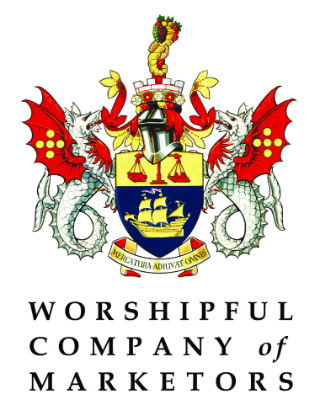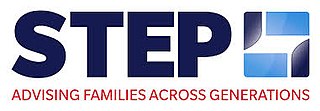
In law, a trust refers to a relationship in which the owner of property gives it to a designated entity, usually described as a trustee. The trustee has a duty to safeguard and use the assets of the trust solely for the benefit of another person or group of persons until distribution, pursuant to the provisions of the trust. In the English common law tradition, the party who entrusts the property is known as the "settlor", the party to whom the property is entrusted is known as the "trustee", the party for whose benefit the property is entrusted is known as the "beneficiary", and the entrusted property itself is known as the "corpus" or "trust property". A testamentary trust is an irrevocable trust that is established and funded pursuant to the terms of a deceased person's will. An inter vivos trust is a trust created during the settlor's lifetime.

The American Institute of Certified Public Accountants (AICPA) is the national professional organization of Certified Public Accountants (CPAs) in the United States, with more than 428,000 members in 130 countries. Founded in 1887 as the American Association of Public Accountants (AAPA), the organization sets ethical standards and U.S. auditing standards. It also develops and grades the Uniform CPA Examination. The AICPA maintains offices in New York City; Washington, DC; Durham, NC; and Ewing, NJ.

The Worshipful Company of Marketors is one of the 111 livery companies of the City of London. The company was founded in 1975.

Trustee is a legal term which, in its broadest sense, is a synonym for anyone in a position of trust and so can refer to any individual who holds property, authority, or a position of trust or responsibility for the benefit of another. A trustee can also be a person who is allowed to do certain tasks but not able to gain income. Although in the strictest sense of the term a trustee is the holder of property on behalf of a beneficiary, the more expansive sense encompasses persons who serve, for example, on the board of trustees of an institution that operates for a charity, for the benefit of the general public, or a person in the local government.

In common law jurisdictions, probate is the judicial process whereby a will is "proved" in a court of law and accepted as a valid public document that is the true last testament of the deceased, or whereby the estate is settled according to the laws of intestacy in the state of residence of the deceased at time of death in the absence of a legal will.
Trusts & Estates is a wealth management journal published by Informa which covers trust law and estates. It was first published in 1904 under the direction of Christian A. Luhnow, who was the editor, publisher and owner of the magazine at the time.

Estate planning is the process of anticipating and arranging for the management and disposal of a person's estate during the person's life in preparation for a person's future incapacity or death. The planning includes the bequest of assets to heirs, loved ones, and/or charity, and may include minimizing gift, estate, and generation-skipping transfer taxes. Estate planning includes planning for incapacity, reducing or eliminating uncertainties over the administration of a probate, and maximizing the value of the estate by reducing taxes and other expenses. The ultimate goal of estate planning can only be determined by the specific goals of the estate owner, and may be as simple or complex as the owner's wishes and needs directs. Guardians are often designated for minor children and beneficiaries with incapacity.

The South African Institute of Chartered Accountants (SAICA), South Africa’s pre-eminent accountancy body, is widely recognised as one of the world’s leading accounting institutes. The institute provides a wide range of support services to more than 48,000 members and associates who are chartered accountants (CAs(SA)), as well as associate general accountants (AGAs(SA)) and accounting technicians (ATs(SA)).

STEP was founded by George Tasker in 1991 and is the international professional body for advisers who specialise in inheritance and succession planning. Its members are mainly solicitors, barristers, attorneys, accountants, tax advisers, trust officers and trust administrators as well as banking and insurance professionals in the trust field.
Laws regulating nonprofit organizations, nonprofit corporations, non-governmental organizations, and voluntary associations vary in different jurisdictions. They all play a critical role in addressing social, economic, and environmental issues. These organizations operate under specific legal frameworks that are regulated by the respective jurisdictions in which they operate.
Geoffrey Arnold Shindler is an English solicitor specialising in the field of wills, trusts and estates law. He is a founding member and president of Society of Trust and Estate Practitioners (STEP).
Robert H. Sitkoff is the Austin Wakeman Scott Professor of Law and the John L. Gray Professor of Law at Harvard Law School, where he specializes in trusts and estates. He previously served as professor of law at New York University School of Law and Northwestern University School of Law.
Sanlam is a South African financial services group headquartered in Bellville, Western Cape, South Africa. Sanlam is the largest insurance company in Africa. It is listed on the Johannesburg Stock Exchange, the Namibian Stock Exchange and the A2X. Established in 1918 as a life insurance company, Sanlam Group has developed into a diversified financial services business. Its five business clusters comprise Sanlam Personal Finance, Sanlam Emerging Markets, Sanlam Investments, Sanlam Corporate and Santam.
Fiduciary Trust Company International is a United States-based wealth management firm that provides investment management and wealth management services. It has served high-net-worth families, foundations, and endowments since 1931. As of 2019, the firm had $71 billion in assets under administration and management, serving clients in 48 countries. The firm and its subsidiaries maintain offices in New York City, and several other locations.
The South African Institute of Tax Professionals (SAIT) is a recognised professional body focusing solely on taxation. It is a registered professional body under the National Qualifications Framework Act, 2008. The Institute is a professional association of tax professionals regulating tax practitioners in South Africa. SAIT promotes and focuses on the public interest, professional standards, ethics and integrity, albeit promoting the tax industry and its members.

The South African Institute of Professional Accountants (SAIPA) is a professional association of accountants based in South Africa. As of 2019, the institute claims to have more than 10,000 members.
In South Africa, there are two main branches of legal practitioner: attorneys, who do legal work of all kinds, and advocates, who are specialist litigators. Attorneys may form professional firms and practice in partnerships, ranging in size to the "Big Five" law firms. The profession is regulated by the Attorneys Act, 1979 . See: Advocates in South Africa. There are currently around 21400 attorneys and 5000 candidate attorneys in South Africa, each of which are represented by the LSSA
TheAmerican College of Trust and Estate Counsel(ACTEC) was established in 1949. It is a professional organization of lawyers, fiduciary counsel and law professors, peer-elected to membership by demonstrating the highest level of integrity, commitment to the profession, expertise, and experience as trust and estate counselors. Members of ACTEC are also known as 'Fellows'. Fellows specialize in the fields of trust and estate law, tax law, estate planning and other related legal specialties by speaking, writing, teaching and participating in local, state and national bar association activities. ACTEC is a legal organization based in the United States.
Testate succession exists under the law of succession in South Africa.
In South Africa the Department of Public Enterprises is the shareholder representative of the South African Government with oversight responsibility for state-owned enterprises in key sectors. Some companies are not directly controlled by the Department of Public Enterprises, but by various other departments. Further, not all state owned entities are registered as companies.






